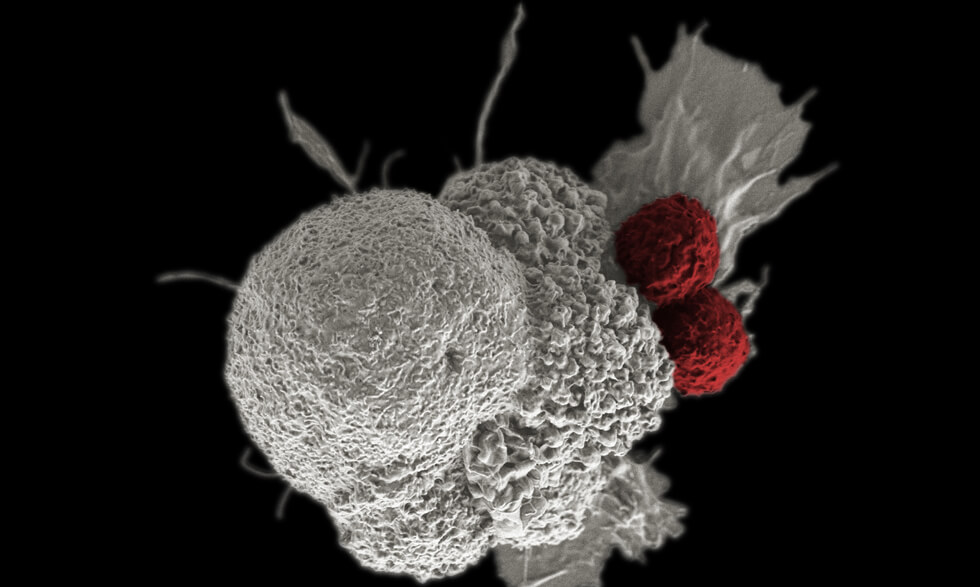
Cancer can play a cat and mouse game with our immune systems, hiding cells and making it harder to fight off the disease.
One treatment to help combat this is immunotherapy, a type of cancer treatment that helps strengthen patients’ immune systems and fight off cancer.
NIH and the National Cancer Institute are working to research and improve immunotherapy to help save lives.
What is cancer?
Our body usually forms new cells when our old cells die. Sometimes this process goes wrong. With cancer, new cells grow when you don’t need them, and old cells don’t die when they should. These extra cells can form a mass called a tumor.
How does immunotherapy combat cancer?
Some types of immunotherapy help find extra cancer cells so that they can be destroyed. Others boost your immune system to work better against cancer.
Who could benefit from immunotherapy?
Immunotherapy is not as widely used as surgery, chemotherapy, and radiation therapy. But immunotherapies have treated people with many types of cancer and are being tested in clinical trials.
Ask your health care provider if immunotherapy may be a good option for you or a loved one.
How is immunotherapy given?
Treatment can be given intravenously (in your vein), by taking a pill, or through your bladder. For patients with early skin cancer, there is an immunotherapy cream you can rub on your skin.
Where do you get immunotherapy?
You may get immunotherapy treatment at a doctor’s office, a clinic, or an outpatient unit at a hospital.
What are possible side effects of immunotherapy?
Side effects are unique to each patient and each cancer.
Some common side effects include fever, chills, weakness, dizziness, nausea or vomiting, fatigue, and other flu-like symptoms.
If you had immunotherapy through your vein, you may have pain, swelling, soreness, itchiness, or a rash at the needle site.
What is NIH’s role in immunotherapy research?
NIH and the National Cancer Institute are leading the way in immunotherapy research and development.
NCI’s Center for Cancer Research is dedicated to finding new and better treatments for cancer, including immunotherapy.
Steven Rosenberg, M.D., Ph.D., and his team at the center have pioneered immunotherapy treatment. They also work with patients at the NIH Clinical Center to test new immunotherapies and improve cancer patients’ lives.
What new immunotherapy research is NCI studying?
Just recently, Dr. Rosenberg and his team saw a complete cancer regression in a late-stage breast cancer patient thanks to an experimental immunotherapy treatment they are working on.
The patient, who is part of an ongoing clinical trial at NCI’s Center for Cancer Research, was not responsive to other treatments.
15 percent of patients in the same trial have seen similar results with both liver and colon cancers.
